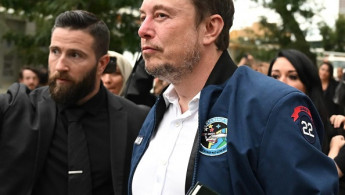Mahsa Amini, Elon Musk nominated for EU's Sakharov Prize for human rights
Mahsa Amini – the Iranian Kurdish woman who died in custody a year ago – and billionaire Elon Musk were among a field of nominations put forward Wednesday for the EU's top rights prize.
The European Parliament's three biggest political groups each backed Amini, who also went by the Kurdish first name Jina, as the recipient for this year's Sakharov Prize, making her the frontrunner for the award which will be presented in December.
The legislature's small far-right bloc was the only one to nominate Musk, the tech titan behind X, the platform formerly known as Twitter, as well as electric car company Tesla and space rocket firm SpaceX.
Other parliamentary groupings put forward activists from Afghanistan, Georgia, Nicaragua, Poland, El Salvador and the United States as their nominations.
Amini died age 22 on 16 September 2022 while being held by Iran's religious police for allegedly breaching the Islamic republic's strict dress code for women.
Iranian authorities, fearing the anniversary of her death could renew widespread street protests, detained her father and warned her family not to publicly mark the occasion, rights groups said.
Security forces also blocked access to the cemetery where Amini is buried.
But Persian-language channels based outside Iran showed Iranians in major cities in the country, including Tehran, yelling anti-government slogans.
Rallies also took place around the world, including in Paris, Sydney, Toronto and New York.
Amini has become emblematic of a movement in Iran calling for "Women, Life, Freedom," seen as the biggest challenge to the country's clerical-run government.
The EU lawmakers' nominations of Amini for the Sakharov Prize include the "Women, Life, Freedom" movement.
Musk was put forward by the Identity and Democracy grouping in the parliament, which counts nationalistic and extreme-right lawmakers among its members.
Musk has sought to portray himself as a champion of free speech, but has been criticised by some rights groups as permitting increased anti-Semitic rhetoric and other hate speech on X.
He has also courted controversy for allowing Donald Trump, the scandal-plagued, twice impeached former US president, and other populist figures adored by the far-right back onto X.





 Follow the Middle East's top stories in English at The New Arab on Google News
Follow the Middle East's top stories in English at The New Arab on Google News


